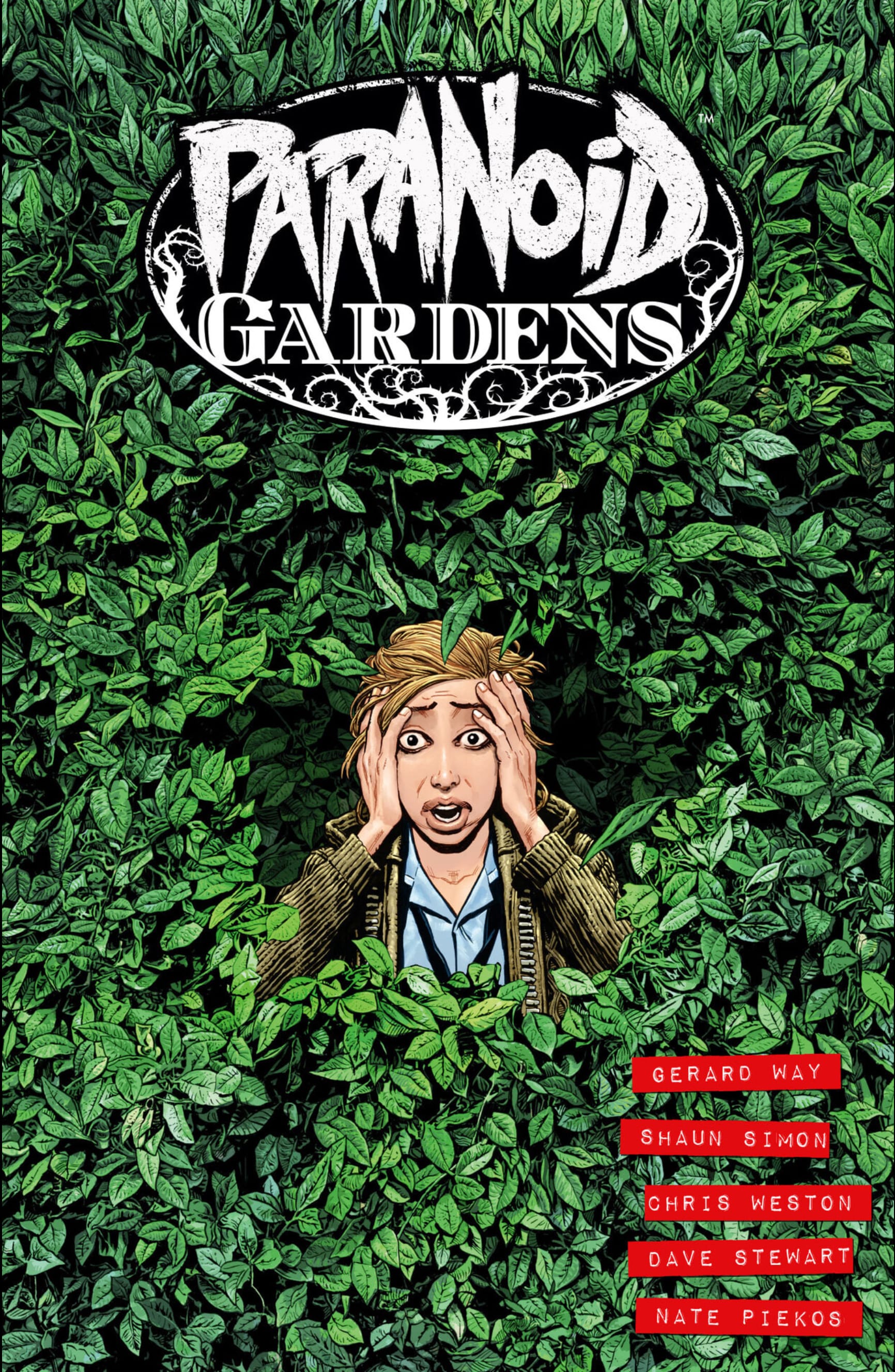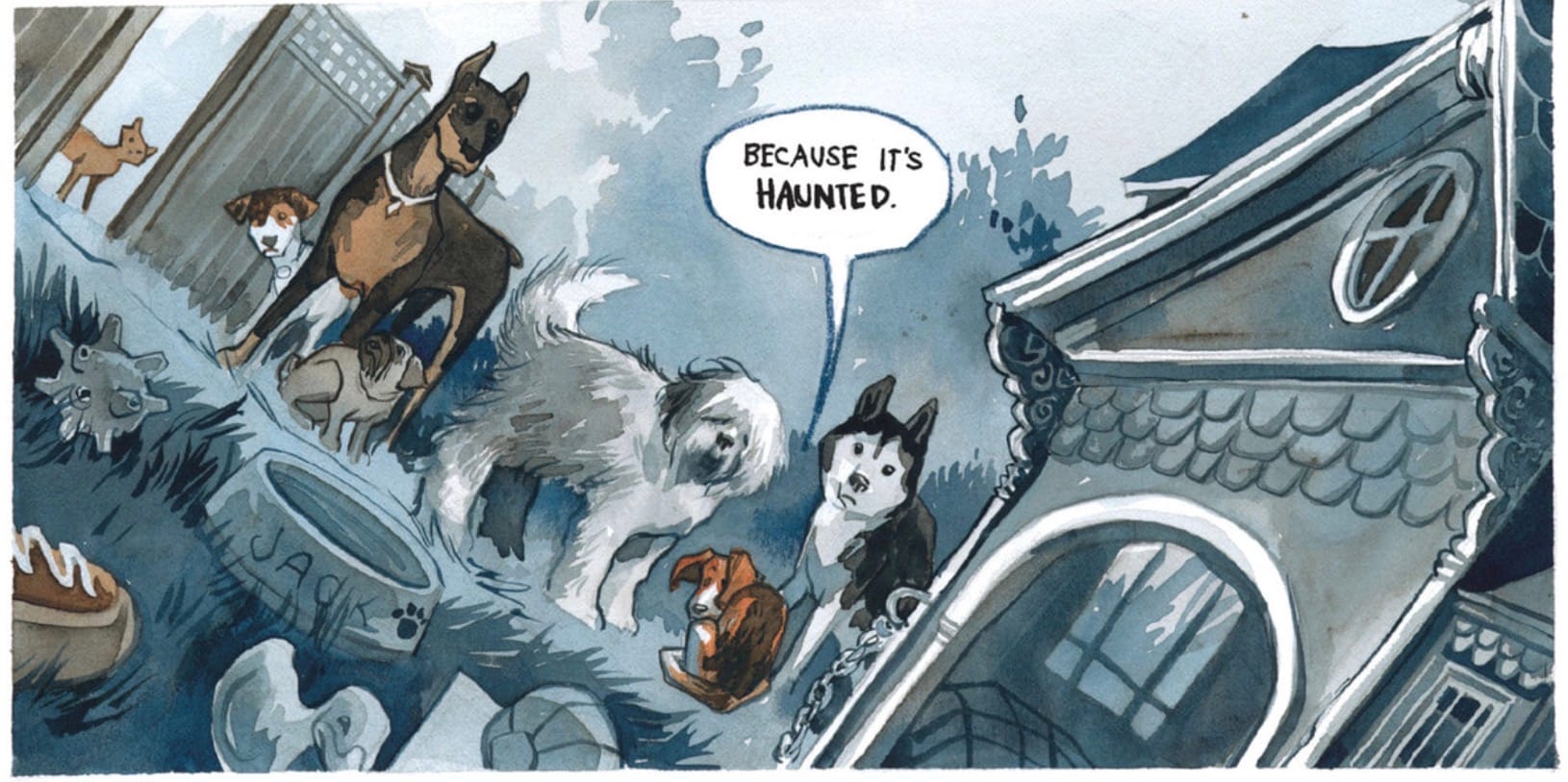Superheroes, Aliens, and Cartoons, Oh My!!! - a review of Gerard Way, Shaun Simon, and Chris Weston’s Paranoid Gardens
Gerard Way and Shawn Simon doing their obscure Vertigo book, just for Dark Horse. So who better to get to draw than Chris Weston?
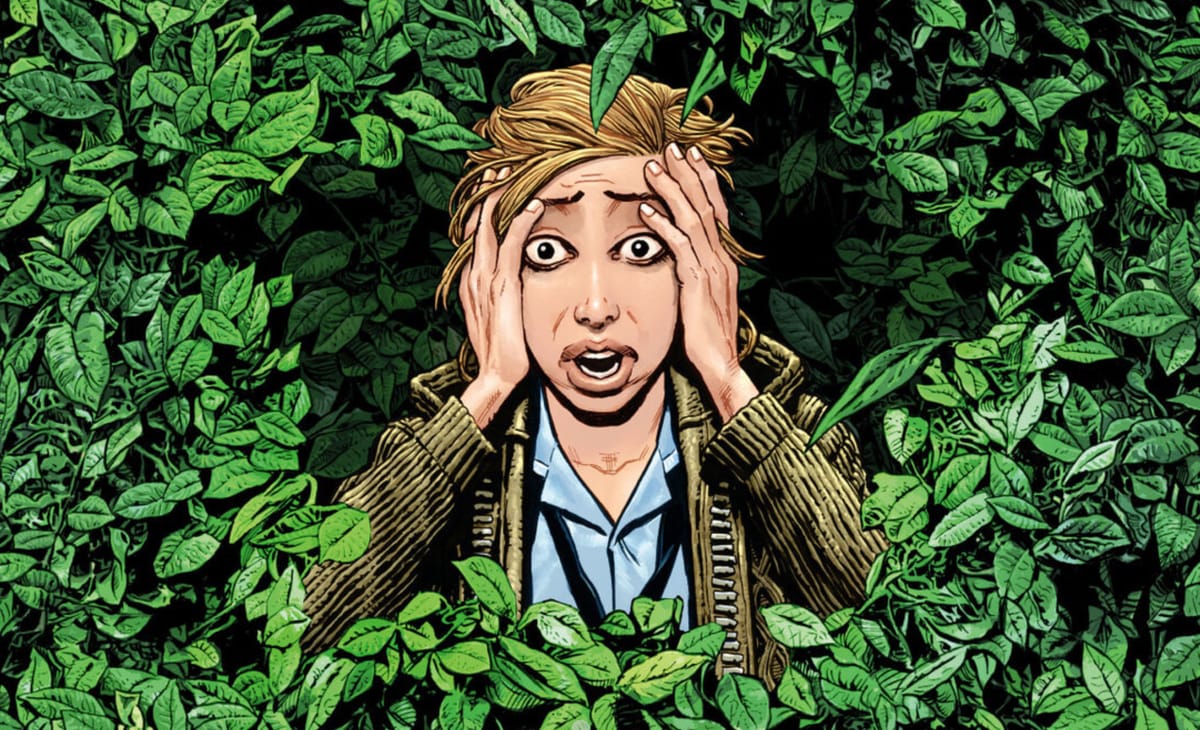
Paradise Gardens is not your normal care facility. The lead nurse is an alien, the head doctor worships at the altar of an entertainment company, and they have their own drugged-up superman as a newly admitted resident. That just scratches the surface of what makes Paradise Gardens a different type of facility. Gerard Way, Shaun Simon, and Chris Weston’s Paranoid Gardens is almost a fairly straightforward workplace drama, showcasing the people who live and work at the center as it fights off a corporate takeover. But the story is never quite that simple; early on we’re introduced to Loo (short for Louise,) one of the caretakers who has to help the aliens but you quickly realize that there’s something else going on with her. Is she an employee or a resident of the facility? And what does she have to do with fighting the takeover by a Disney-like conglomerate?
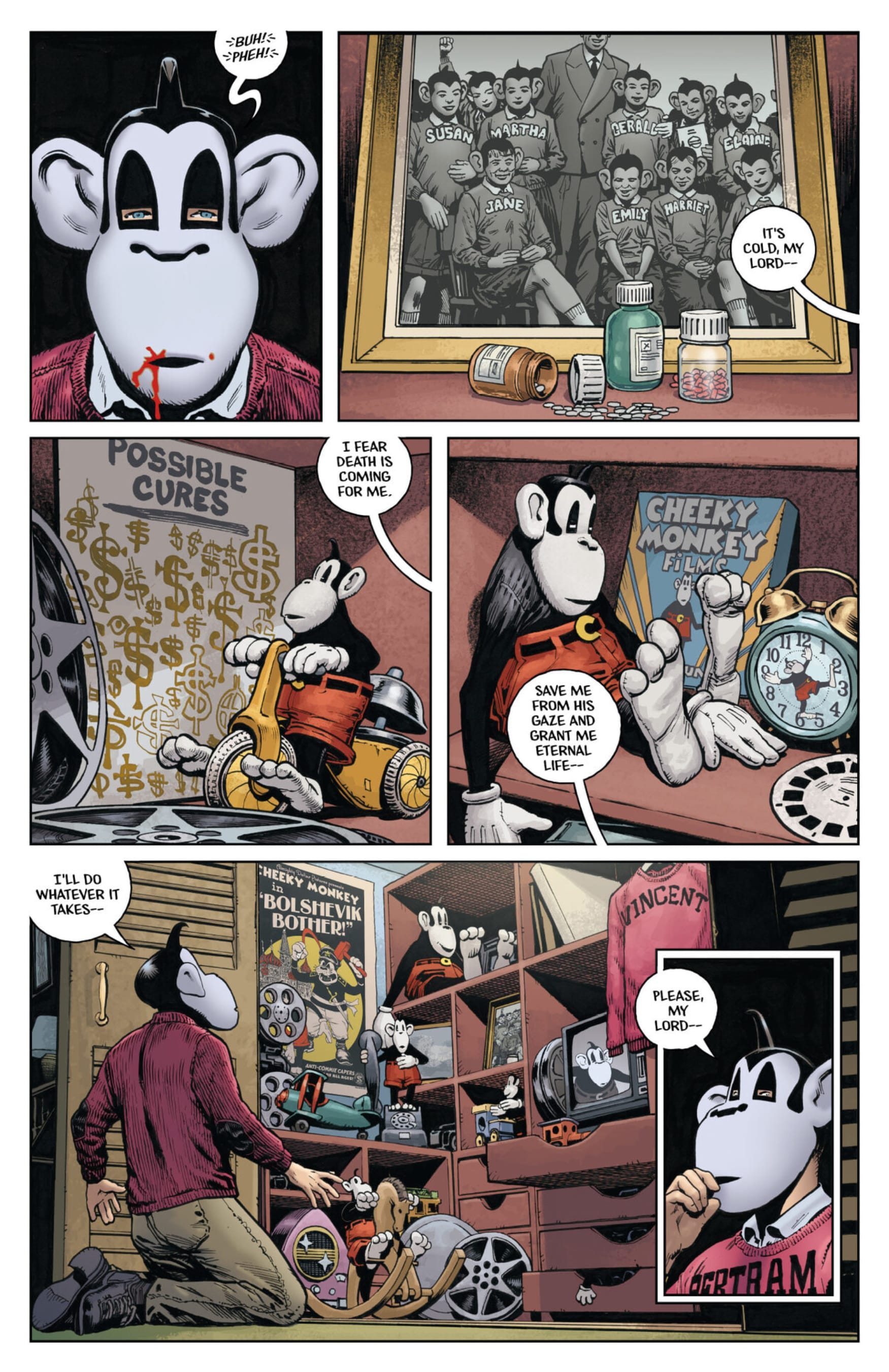
Way and Simon’s writing is infused with trauma, the ways that we experience it, and the ways we try to heal from it. Like the facilities’ residents, that trauma ranges from the mundane (aging, having a boss that just doesn’t understand you) to the fantastic (not remembering anything before four months ago, being transformed into something that is out of your experience). While everyone has their issues to deal with, Loo bears the brunt of the trauma and she bears it for all of the others as well. In her, Way and Simon show these reflections of what everyone else is going through in Loo’s journey as she tries to understand just who she is and why she’s at Paradise Gardens.
And nothing can just be normal. Take Doctor Zerc, the head doctor who sells out the facility and everyone in it for immortality by bartering the facility to the highest bidder, Cheeky Monkey Films. Zerc’s motivations are fairly simple to understand; he’s afraid of dying. But really, who isn’t? But to gain immortality, he sells his soul to an entertainment company. He sells his soul to a corporation to get more time on this earth. The comic opens with Zerc praying at a homemade shrine to Cheeky Monkey, to toys, film strips, and an old black-and-white TV, waiting to get a message from Cheeky Monkey himself.

Instead of Cheeky Monkey showing up, a superman is wheeled into the emergency entrance of Paradise Gardens, strapped to a gurney. This superman (lowercase “S” as we’re never given his actual superhero name) knows Loo but she has no idea why. After he’s brought in, this superman shuffles around the gardens, robed and sedated enough to be unable to coherently answer Loo’s questions. This hero is numbed and effectively useless when Cheeky Monkey eventually shows up for the facility— the emasculation of the superhero at the company that was built upon a cartoon animal.
Chris Weston’s artwork flattens out the story as if we are the sedated ones but in a good way, a thematic way. There’s not much difference between highs and lows thanks to Weston’s very matter-of-fact approach to drawing and storytelling here. It’s reminiscent of his work years ago with Grant Morrison on The Filth (reviewed once upon a time here before Morrison identified as non-binary) where Weston brings the sacred and the profane together on the page. He’s doing the same thing here but it functions very differently.
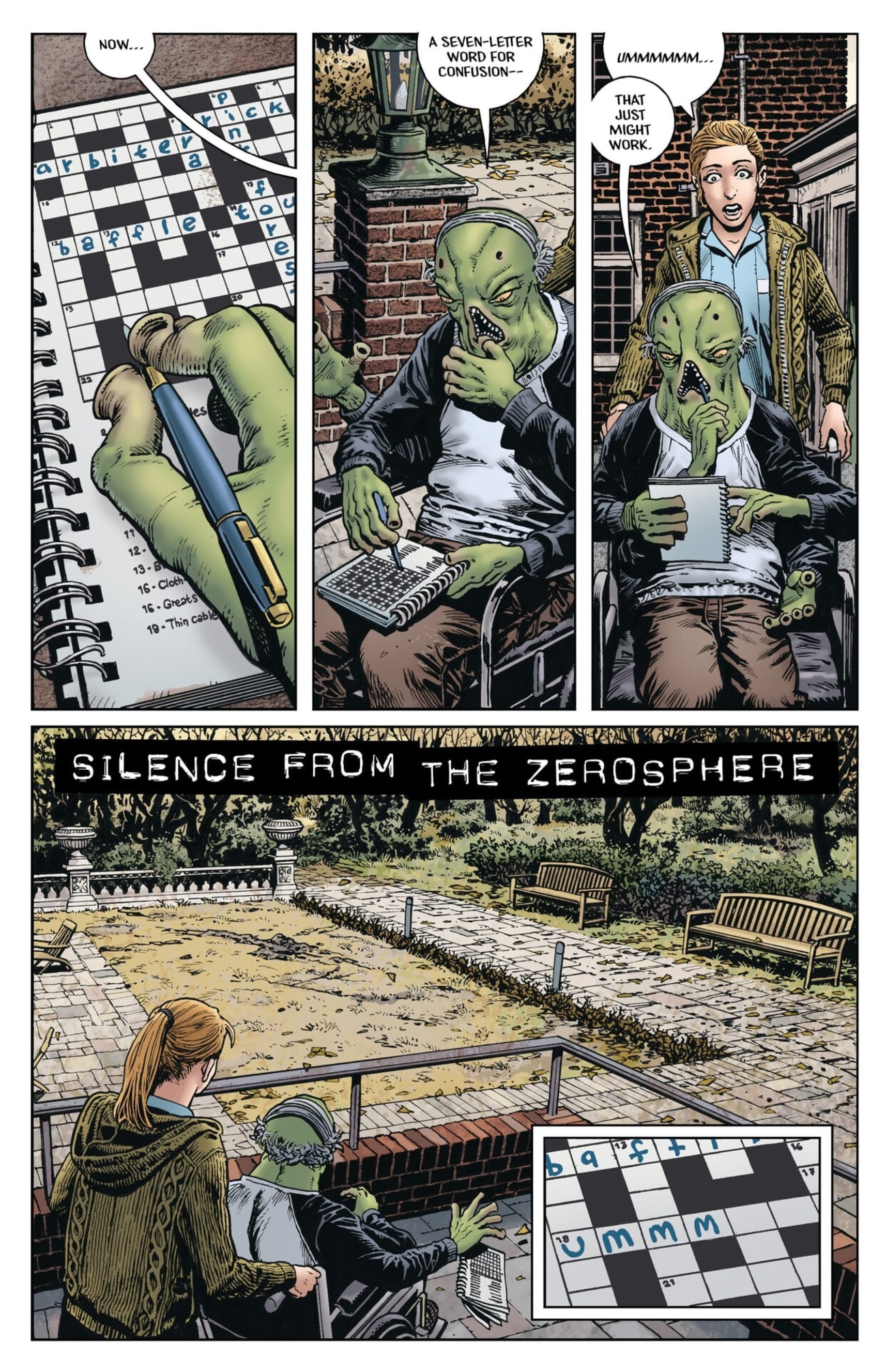
Weston’s work strives to not call attention to the weirdness of the story; it’s played very matter-of-factly. Very quickly, Weston introduces you to this world and you experience this synthesis of the fantastic and the mundane. And the fantastic just comes as part of the mundane because the story treats the fantastic that way. The story introduces these out-of-this-world ideas but treats them like they are all part of our normal life. Of course, there would be aliens in a care facility. Of course, orderlies work side-by-side with ghosts. Of course, a very traditional-looking vampire is conducting a group therapy session. These things are normal because the story and the art treat them that way. Weston isn’t drawing some kind of superhero power fantasy; he’s drawing this drama of people trying to hold or piece their lives together.
This is an adventure comic so it’s not too much of a spoiler to say that this is a story about Loo saving Paradise Gardens and in the process, having to save herself. Way and Simon are trying to show the way to self-healing and toward a better world for all. There are the forces of uncertainty and greed at work, trying to subjugate everyone and everything but this story is trying to push back against those forces. Loo has a past, a painful one that has been taken away from her. It’s a bit too much of the real world in this story but it is Loo’s story. Loo possesses agency in her story but she’s not allowed to have it in the story. Way follows in the footsteps of his hero Grant Morrison, who in books like The Filth, The Invisibles, and even The New X-Men was trying to wake us up as much as trying to entertain us.
Let’s be honest, this is a book about the Disneyfication of everything. That’s who Cheeky Monkey is, just an avatar for Mickey Mouse and Disney’s acquisition of the world. There’s where the weirdness of aliens and superheroes comes in as Disney has just gobbled up everything from The Avengers to Alien and turned it into content. Just more and more content. While weirdly wonderful and fantastic in a hazy drugged kind of way, Way, Simon, and Weston aren’t showing us anything but the world that we already live in. But without Paranoid Gardens, is it a world we could see or would even want to see? Or would it just be better to live numbed out by the endless stream of streaming shows, legacy reboots, or sequels to bought-and-sold intellectual property?
